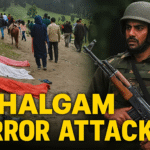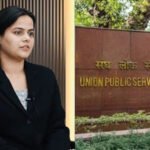PM Modi Seeks Tips from Paris-Returned Olympians for India’s Bid to Host 2036 Olympics
When Prime Minister Narendra Modi announced India’s dream to host the 2036 Olympics, it wasn’t just a fleeting thought but a significant ambition. This dream, which he highlighted during his Independence Day speech, is more than just a vision; it’s a call to action. To make this dream a reality, PM Modi turned to an invaluable resource—the Paris-returned Indian Olympic contingent. Who better to provide insights than those who’ve lived and breathed the Olympics firsthand?
Learning from Experience: The Olympians’ Role in Shaping India’s Bid
PM Modi’s interaction with the Olympians was not just a gesture of appreciation but a strategic move to gather practical insights. He acknowledged the athletes’ experiences and sought their input on how India can prepare its infrastructure for the 2036 Olympics. The athletes, many of whom had battled not only on the field but against various logistical challenges, were seen as key players in ensuring that India leaves no stone unturned.
“You have all seen and experienced what it takes to compete at the Olympic level,” PM Modi remarked, emphasizing the importance of their input. “We need your suggestions to ensure that we don’t miss out on any details, however small, in our preparation for 2036.”
Building a Vision: From Words to Action
The Prime Minister’s vision is not just about hosting the Olympics but doing so in a way that sets a benchmark for the world. This is why he instructed the sports ministry to create a comprehensive document that incorporates the feedback and recommendations from the athletes. “You are an essential part of my 2036 team,” Modi said. “With your help, we aim to host an Olympics like no other.”
This statement reflects Modi’s belief in collective effort. The athletes are not just representatives of the country but partners in the journey to hosting the 2036 Olympics.
India’s Preparations: Setting the Stage for 2036
While the vision is grand, the groundwork has already begun. The state of Gujarat has taken a proactive stance, having pledged in its 2022 assembly manifesto to bid for the 2036 Olympics. Infrastructure development is underway, aligning with the long-term goal of hosting the Games. The state’s commitment underscores India’s determination to present a strong bid.
But it’s not just about the physical infrastructure. The bid for the Olympics is as much about the spirit of the nation as it is about the facilities. PM Modi’s outreach to the athletes is a testament to this approach, where the focus is on holistic preparation—building both the hardware and the heartware needed to host such a prestigious event.
The Role of the Indian Olympic Association (IOA)
The Indian Olympic Association (IOA) has already initiated discussions with the International Olympic Committee’s (IOC) dedicated unit, the Future Host Commission (FHC). This is the first official step in the bidding process. The dialogue with the FHC indicates that India is serious about its intent and is taking all necessary steps to ensure a successful bid.
For those unfamiliar, the Future Host Commission is a specialized entity within the IOC responsible for overseeing the selection process for future Olympic Games hosts. Engaging with this body early on provides India with the opportunity to align its efforts with the IOC’s expectations and requirements.
The Human Element: Acknowledging the Athletes’ Journey
During his interaction, PM Modi was keen to dispel any notions of failure among the athletes. “First of all, remove the thought from your mind that you have returned to India after losing the Olympics. You have returned with the country’s flag held high,” he asserted. His words were a reminder that in sports, there is no true loss—only learning experiences.
The Prime Minister’s acknowledgment of the athletes’ struggles, particularly the challenges they faced with the lack of cooling in their rooms at the Paris Olympic Games Village, was a poignant moment. “You must have said in anger that Modi makes tall claims but has left us in this condition,” he quipped, adding that he ensured air conditioners were provided within half an hour of learning about the issue. This anecdote highlighted not only the challenges faced by athletes but also the government’s responsiveness in addressing them.
India’s Olympic Dream: A Vision for the Future
The dream of hosting the 2036 Olympics is not a recent one. PM Modi first articulated this vision during the International Olympic Committee’s Annual Session in Mumbai last October. “India is very excited to organize an Olympics,” he had said, making it clear that this is not just a desire but a committed goal.
With the support of the IOC, India aims to fulfill this dream, which PM Modi describes as the aspiration of 1.4 billion Indians. The process has already begun, with the National Olympic Committee of India and the IOA engaging in discussions with the Future Host Commission. This is the first step in what promises to be a long but rewarding journey.
A Unified Effort: Collaborating for Success
Hosting the Olympics is not just about one entity or one leader. It’s a collective effort that requires the collaboration of various stakeholders—from the government to sports bodies, from athletes to the general public. PM Modi’s outreach to the Olympians is an example of how every voice matters in this process.
The athletes’ experiences and feedback are invaluable in ensuring that India’s bid is not just strong but also reflective of the real challenges and opportunities that come with hosting an event of this magnitude.
Conclusion: A Dream Worth Chasing
India’s bid to host the 2036 Olympics is more than just a dream—it’s a statement of intent. With the right preparations, guided by the insights of those who have been at the heart of the Olympic experience, this dream can become a reality. PM Modi’s proactive approach, coupled with the commitment of the Indian Olympic Association and the state governments, puts India on a promising path.
As the country gears up for this monumental task, the focus remains on not just hosting the Games but doing so in a way that leaves a lasting legacy. And with the collective effort of every stakeholder, from the government to the athletes, India is well on its way to making history.










